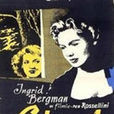《恐懼》是由羅伯特.羅西里尼執導的劇情片,英格麗.褒曼及Mathias Wieman等參加演出,2007年在德國上映。
《恐懼》的劇情講述有夫之婦的伊蓮娜戀上了另外恩里克,此事被恩里克的前妻發現,她威脅伊蓮娜說要把此事告訴她的丈夫,以此來勒索她,而伊蓮娜不得不支付5000馬克的故事。
基本介紹
- 中文名:恐懼
- 製片地區:德國
- 導演:羅伯特.羅西里尼
- 類型:劇情
- 片長:90分鐘
- 上映時間:2007年

《恐懼》是由羅伯特.羅西里尼執導的劇情片,英格麗.褒曼及Mathias Wieman等參加演出,2007年在德國上映。
《恐懼》的劇情講述有夫之婦的伊蓮娜戀上了另外恩里克,此事被恩里克的前妻發現,她威脅伊蓮娜說要把此事告訴她的丈夫,以此來勒索她,而伊蓮娜不得不支付5000馬克的故事。
恐懼,是一種人類及生物心理活動狀態;通常稱為情緒的一種。恐懼是指人們在面臨某種危險情境,企圖擺脫而又無能為力時所產生的擔驚受怕的一種強烈壓抑情緒體驗。恐懼...
恐懼是一個漢語辭彙,讀音為kǒng jù,意思是驚慌害怕,惶惶不安。出自於《易·震》:“洊雷,震,君子以恐懼修省。”...
《可愛恐懼》(Lovely Horribly)是由姜敏慶執導,朴敏珠擔任編劇,朴施厚、宋智孝、李起光、鹹恩靜等主演的月火劇,於2018年8月13日在韓國KBS2電視台首播。該劇講述...
本片是暗黑2010恐怖系列的8部合集電影之一,講述三個大學生為追求恐懼刺激而遭遇驚悚的冒險故事。參演了暮色系列的傑克遜·拉斯波恩擔綱主演。...
恐懼症(phobia):是以恐怖症狀為主要臨床表現的一種神經症。...... 恐懼症(phobia):是以恐怖症狀為主要臨床表現的一種神經症。中文名 恐懼症 外文名 phobia ...
《戰勝內心的恐懼》每個人都曾經受著恐懼的困擾,要戰勝內心的恐懼,除了正視和面對它以外,別無它法。本書助你理清恐懼情緒的複雜性,進而幫你從容應對恐懼、戰勝...
印度電影《恐懼》由Yash Chopra導演,1993年12月24日上映。由沙魯克·汗、桑尼·戴爾、玖熹·查瓦拉主演,是一部驚悚片。...
恐懼指數概念由美國投資顧問詹姆士提出,是根據美聯儲存金時價與美元(M3)供應量關係設定的一個指標。它是波動率指數的俗稱,英文簡稱為VIX。...
社交恐懼症是恐懼症的一種亞型,恐懼症原稱恐怖性神經症,是神經症的一種。以過分和不合理地懼怕外界某種客觀事物或情境為主要表現,患者明知這種恐懼反應是過分的或...
所謂恐懼感,是在真實或想像的危險中,個人或群體深刻感受到的一種強烈而壓抑的情感狀態。其表現為:神經高度緊張,內心充滿害怕,注意力無法集中,腦子裡一片空白,不能...
性恐懼是指對正常性活動感到恐懼的性心理障礙。當患者進行甚至僅僅面臨性交時,即產生強烈的恐懼情緒,同時可表現出心慌、心悸、噁心、全身出汗等生理反應。...
害怕與別人對視,或自認為眼睛的餘光在窺視別人,因而惶恐不安者,稱對人恐怖症或稱對人恐懼症。本病以迴避對物體、情境或活動的恐懼為特徵;患者明知這種恐怖不合理...
恐懼作者簡介 編輯 史蒂芬·茨威格(Stefan Zweig,1881-1942)奧地利著名小說家、傳記作家。茨威格擅長細緻的心理描寫,善於對人物尤其是女性的奇特命運以及個人遭際與心靈...
“深海恐懼症”是恐懼症的一種,總的來說與患者過去的恐懼經歷有很大的關係。這樣的恐懼症患者往往是因為害怕無法逃離所處的情況而感到恐懼。深海恐懼症多數都會讓...
《原始恐懼》類似於前作Dead Horde,是一款俯視視角的第三人稱恐怖射擊遊戲。主角貌似是大叔,打的是變異怪物,超過15種武器,玩家可以升級,最多可以4人合作,有故事...
幽閉恐懼症(密閉空間恐懼症)是對封閉空間的一種焦慮症。幽閉空間恐懼症屬於場所恐懼症的一種,患者害怕密閉或者擁擠的場所,因為擔心這些場所會發生未知的恐懼,嚴重的...
特定恐懼症—specific phobia恐懼局限於特定場合,如怕接近某種特殊動物、怕高(恐高症)、怕雷電、怕黑暗、怕飛行、怕封閉的空間(幽閉恐懼)、怕在公共廁所排尿或排便...
是以恐懼症狀為主要臨床表現的一種神經症。患者對某些特定的對象產生強烈和不必要的恐懼,伴有迴避行為。病人知道這種害怕是過分、不應該、不合理的,但這種認識仍不...
性交恐懼症者既不是一個嚴重的性變態者,也不是一個道德敗壞、尋花問柳的人,而只是方面的有些失常,原因是比較複雜的。比如有些人在性發育期間未受到正確教育,...
恐懼是一個漢語辭彙,讀音為kǒng jù,意思是驚慌害怕,惶惶不安。出自於《易·震》:“洊雷,震,君子以恐懼修省。”...
貝克教授和他的兩位同事介紹了認知療法的基本概念,認知療法多年來在抑鬱症治療方面成功,以及在治療焦慮症和恐懼症方面的非凡效果。貝克特別為這本被譽為治療焦慮症...
黑暗恐懼症是一種心理疾病,主要表現為怕黑,不敢一個人獨處,白天與晚上精神症狀不一,情緒相差很大。黑暗恐懼主要是不相信自己,害怕而產生的消極情緒,從產生消極情緒...
害怕是一個漢語辭彙,讀音為hài pà,英文可譯為afraid,解釋為面臨險境而心中恐懼、驚慌。例如,心中害怕,不由得加快了腳步。...
社交恐懼症又叫社交焦慮障礙。常發病於青少年或成人早期,男女幾率均等。患者主要表現為對社交場合和人際接觸的過分擔心,緊張和害怕。患者常在公眾場合進食或說話,聚會...
恐怖,拼音: kǒngbù。釋義由於生命受到威脅或看到暴力、血腥的場面而引起的恐懼。 出自魯迅《且介亭雜文二集·葉紫作<豐收>序》:“這一世界中人,會輕蔑,憎惡...
恐怖症是以恐怖症狀為主要臨床表現的一種神經症。患者對某些特定的對象或處境產生強烈和不必要的恐懼情緒,而且伴有明顯的焦慮及自主神經症狀,並主動採取迴避的方式來...
